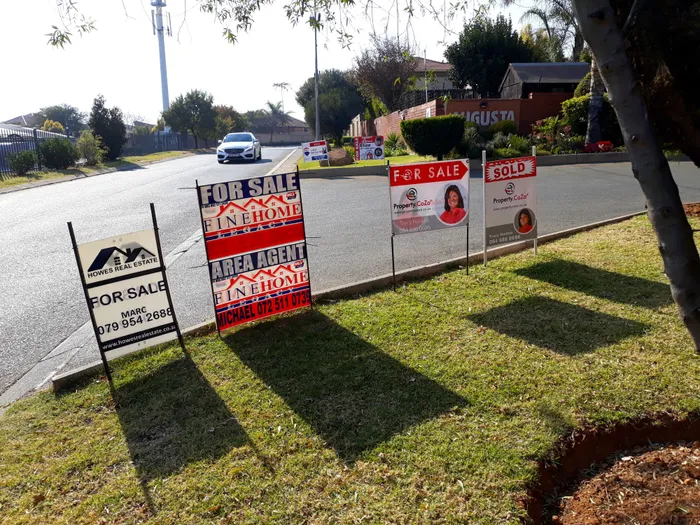
Homes are continuing to increase in value, with a gain in cost averaging 2.2% year-on-year in April, which is the fastest pace at which housing has become more expensive in two years.
Image: Karen Sandison/African News Agency
Homes are continuing to increase in value, with a gain in cost averaging 2.2% year-on-year in April, which is the fastest pace at which housing has become more expensive in two years.
The April figure represents an increase from the 2% recorded in the FNB House Price Index (HPI) for March. FNB projects house price growth to approach the 3% mark by 2026.
In 2023, South Africa’s residential property market comprised 6.91 million properties and was valued at R6.789 trillion, City Mark data indicates. This is the latest information available to IOL.
According to Statistics South Africa’s latest General Household Survey, a typical South African household had about 3.2 members. More than three-quarters of homes had four to five members or fewer, while only 13% of households contained six members or more.
Siphamandla Mkhwanazi, FNB senior economist, noted that information from the Deeds Office indicates that transaction volumes are about 16% lower than what was seen before the COVID-19 pandemic.
This, he said, suggests a protracted recovery in market activity.
Despite this, estate agents reported a surge in positive sentiment, with activity ratings reaching a three-year high in the first quarter of the year. “However, market outcomes are still modest, as reflected in slow transaction volumes growth and slightly longer selling times,” he said.
On average, it took 11 weeks to sell a home in the last quarter of 2024, which has increased to 12 weeks and a day as of the first quarter of this year.
Unsurprisingly, buyers are more cautious given the divergence between positive sentiment and market outcomes. This could be due to the ongoing impact of the pandemic-induced cost-of-living crisis, further exacerbated by global uncertainty, said Mkhwanazi.
In addition, many prospective buyers, particularly in the affordable segments, may still face significant hurdles in the home-buying process related to affordability.
The latest DebtBusters’ Debt Index for the first quarter of the year showed that consumers had 53% less spending power when compared to nine years ago.
Since 2016, electricity tariffs have increased by 135%, the price of petrol has risen by 88%, and the compound effect of inflation is 52%, DebtBusters pointed out.
Mkhwanazi noted that the “recent dip in consumer confidence due to heightened global and domestic uncertainty is likely to disproportionately impact the affluent segments, potentially leading to slower sales and price stagnation”.
The FNB/BER’s latest Consumer Confidence Index dropped to its lowest point since the second quarter of 2023 as of the first three months of the year.
However, the affordable housing market could see higher demand should there be additional interest rate cuts by the South African Reserve Bank and a potential 10% increase in the transfer duty threshold. “These factors suggest a potential shift in demand towards more affordable housing options amid increased uncertainty,” said Mkhwanazi.
